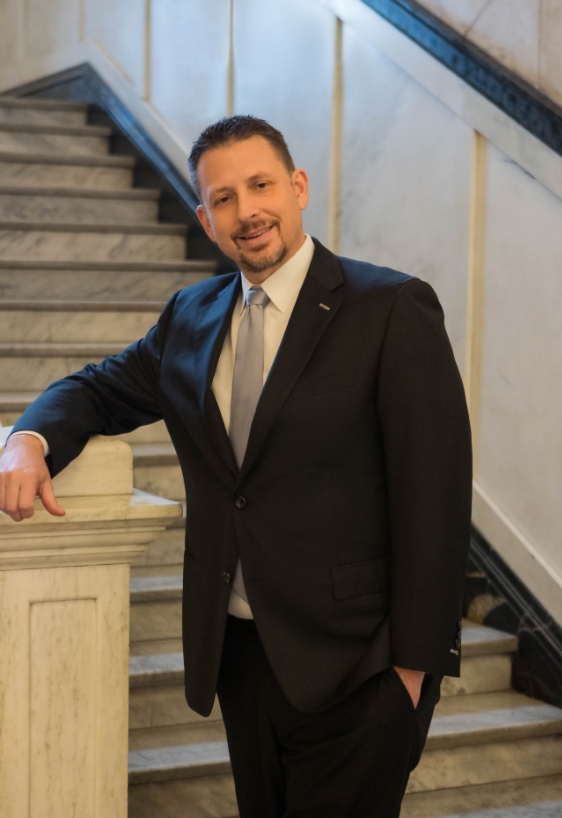As many of you may already be aware (hopefully not because you have already been ticketed for violating this new statute), the Illinois Legislature passed a new law that took effect on January 1, 2010, limiting the usage of cellular phones in school and construction zones. The law was introduced in the House as HB 0072, by Representative John D’Amico (D) of the 15th Dist. (Chicago). It was later sponsored in the Senate by Pamela J. Althoff (R) of the 32nd Dist. (Crystal Lake), and later passed both houses of the Illinois General Assembly as Public Act 96-0131.


Many Illinois attorneys, prosecutors and Illinois criminal defense attorneys alike, have interpreted the new law to mean that individuals cannot be utilizing their cell phones at any time while in these protected zones. The rationale behind this belief is found in the statute itself, 625 ILCS 5/12-610.1, which reads in section (e) that “A person, regardless of age, may not use a wireless telephone at any time while operating a motor vehicle on a roadway in a school speed zone established under Section 11 605, or on a highway in a construction or maintenance speed zone established under Section 11 605.1.” When the Peoria Journal Star printed an article regarding new laws to take effect January 1 of this year on December 30, 2009, the author, Doug Finke, wrote that “[H]ouse Bill 72, makes it illegal for drivers to use cell phones in school or construction zones, unless they are the hands-free variety.” To be honest, my interpretation of the new law was consistent with those who had interpreted the statute to mean no cell phones at any time; that was until I reread the statute after another attorney and I were discussing the matter since our office was then representing someone charged with having violated this particular statute. Attorneys should invariably always read the statute itself before moving forward in a criminal matter; that is what we are taught, and this is particularly true with new statutes. Of course, I had done this, but discussion led to further analyzation of the statute and conducting some legislative research to determine whether or not the new statute was to truly be interpreted as to not allow cellular usage at any time in these protected zones.
Notice the reference to 625 ILCS 5/11-605 at the end of the sentence quoted above? That particular statute is what establishes “School Speed Zones”; requiring you to reduce your speed to 20 mph at certain times. In that statute “School Speed Zones” are only in effect “[o]n a school day when school children are present and so close thereto that a potential hazard exists because of the close proximity of the motorized traffic, no person shall drive a motor vehicle at a speed in excess of 20 miles per hour while passing a school zone or while traveling on a roadway on public school property or upon any public thoroughfare where children pass going to and from school.” (emphasis added).
625 ILCS 5/11-605 goes on to say that “School Speed Zones” are only in effect from 7:00 a.m. to 4:00 p.m.
When controversy exists over the interpretation of a law, which may have been poorly drafted, which was passed by the legislative branch of any governmental body, one has to turn to the “legislative history” of the statute, if any exists, to try and determine the legislative intent of the legislative body. That’s exactly what I set out to do, although no definitive answer could be ascertained from reviewing the legislative history available at the Illinois General Assembly’s website with respect to this particular piece of legislation; no debates as to the intent or meaning of the statute could be located.
Finding no help from the house and senate debates regarding this statute, I called Senator Althoff’s office for assistance, since she was the sponsor in the Senate, which was the last house of the Illinois General Assembly to pass the bill. Senator Althoff’s office directed my inquiry to someone with the Illinois State Police. He directed my inquiry to the legal counsel of the Illinois State Police.
Further efforts included contacting the Illinois Legislative Information Bureau, which suggested that I contact the Index Department of the Illinois Secretary of State and the House Committee Clerk. The individual I spoke with at the Index Department told me that he would gladly send me the audio recordings of the transportation committee meetings, where HB0072 was assigned, to further my efforts in ascertaining the correct reading of this statute. During this time, an additional telephone call was received from a Republic Legislative Analyst who advised me of his interpretation of the statute.
As a result of my efforts, I must say that I learned a lot about the Illinois legislative process, discovered the existence of new governmental entities that I previously did not know existed, and got to speak to a lot of wonderful people employed by the Illinois Government, all of whom, with the exception of one, were extremely helpful and seemed to be interested in what I was trying to accomplish.
Bottom line, I think there may be a continued debate as to whether or not Illinois drivers can use their cell phones at any time in a “school zone”. That being said, it is my belief, and the belief of some other Illinois criminal defense attorneys that you are safe to use your cell phone in a “school zone” provided there are “no school children present and so close thereto that a potential hazard exists because of the close proximity of the motorized traffic.” Why else would 625 ILCS 5/12-610.1 reference “school speed zones,” instead of “school zones”, and 625 ILCS 5/11-605. If it were not so, would it mean that I couldn’t use my cell phone in a school zone at 9:00 p.m. throughout the week or on the weekend? If that’s the case, the statute is rather ridiculous. That being said, I think until the statute is redrafted or one of our appellate courts is asked to interpret it that Illinois drivers run the risk of being ticketed and having to hire an Illinois attorney who practices in criminal law to advocate on their behalf as to why it was okay for them to be using their cell phone in a school zone (not very cost effective I don’t think).
Why run the risk? In all fairness, and for the safety of our children, why not hang up the cell phone while in a school zone between the hours of 7:00 a.m. to 4:00 p.m.? Why not reduce your speed to 20 mph whether or not you see children in the area. Personally, I try to never drive above 20 mph in a school zone during those hours, no matter how bad it upsets the other drivers behind me or whether or not school children are present. Why? For one, I don’t want to be ticketed by an officer that wants to have a philosophical debate with me about whether or not there were school children present. For another, I don’t want to run the risk of some child darting out in front of my car and wind up on the front page of the newspaper for being the one who struck him. How bad would I feel? How bad would you feel?
The statute allows for the use of wireless devices, so you are alright in that regard; buy a Bluetooth if you always want to be able to speak to whoever you are talking to or need to speak with.
While not a proponent of the passage of some of the overwhelming number of laws that now fill up eight very large volumes of what is the Illinois Compiled Statutes, I would not be opposed to both statutes reading that you are in violation of them if you are doing either between the hours of 7:00 a.m. and 4:00 p.m. while school is in session. That being said, I still believe that the current and correct interpretation is that those laws are only applicable when there are “school children present and so close thereto that a potential hazard exists because of the close proximity of the motorized traffic.”
Construction zones are a different beast altogether. No speeding or cell phone usage at any time. This is true whether or not workers are present, which used to be the way the law read.
Fines are steep indeed for violating any of the statutes discussed herein, so just be prepared if you are in a hurry or just have to take that call; prosecutors are also very unforgiving when you’re caught, so there’s the warning you absolutely will not get from the officer who pulls you over.

